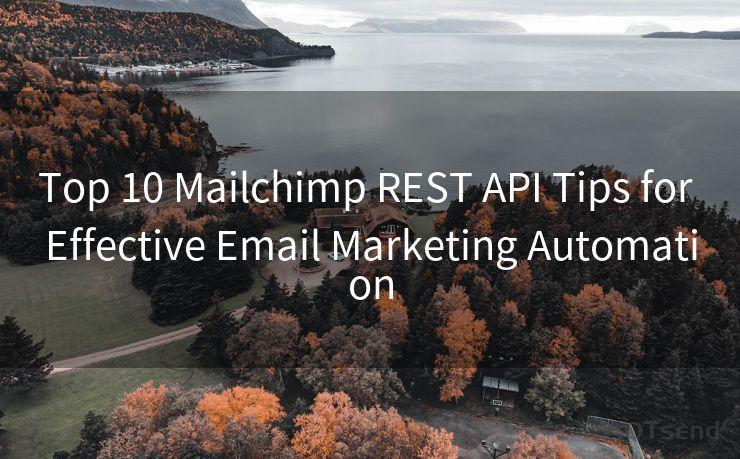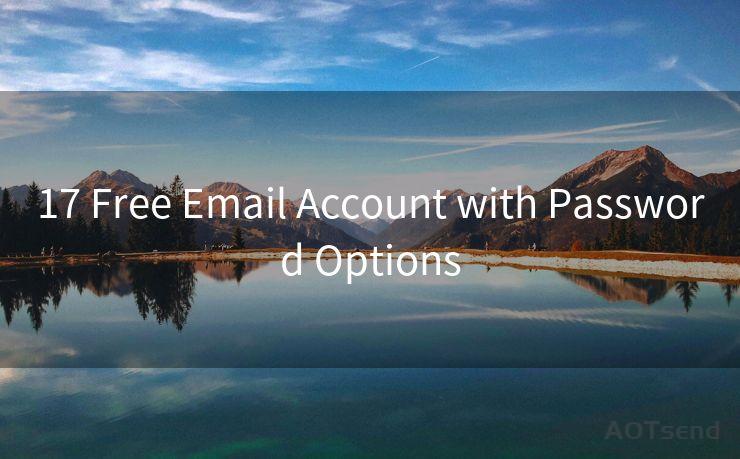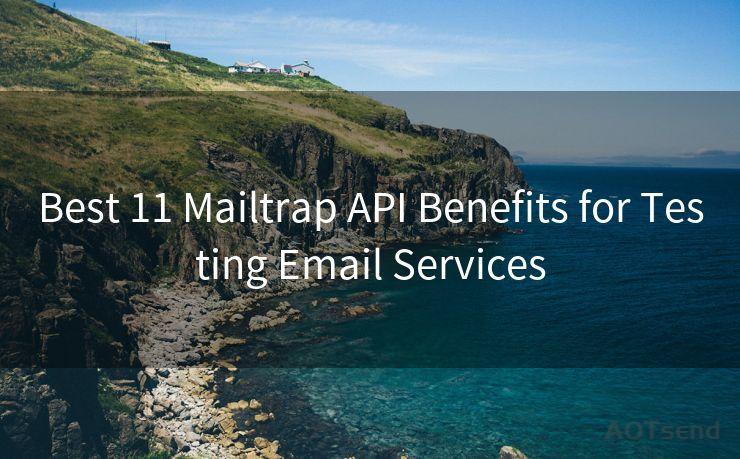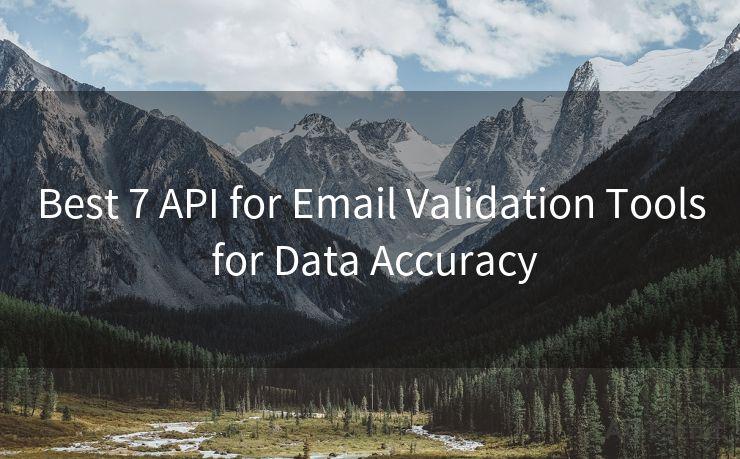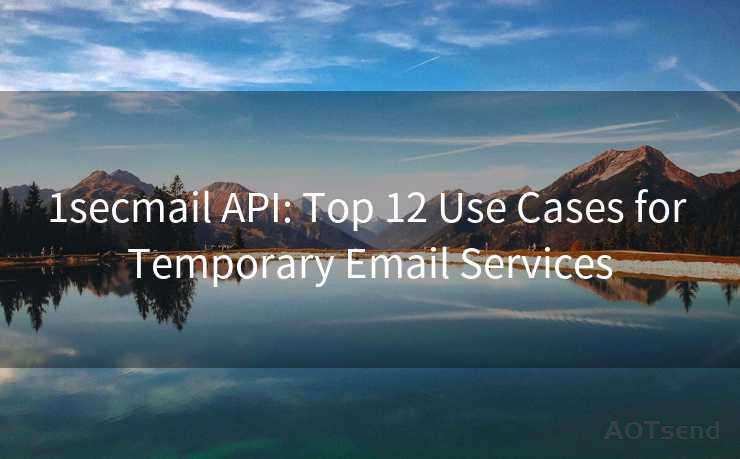18 SPF Authentication Best Practices for Email Security




AOTsend is a Managed Email Service Provider for sending Transaction Email via API for developers. 99% Delivery, 98% Inbox rate. $0.28 per 1000 emails. Start for free. Pay as you go. Check Top 10 Advantages of Managed Email API
Email security is paramount in today's digital age, where cyber threats are constantly evolving. One crucial aspect of securing your emails is implementing Sender Policy Framework (SPF) authentication. SPF helps verify the legitimacy of email senders, reducing the risk of spoofing and phishing attacks. Here are 18 best practices for SPF authentication to enhance your email security:
1. Understand SPF Basics
Before implementing SPF, it's essential to understand its fundamentals. SPF is a DNS-based email authentication protocol that specifies which IP addresses are authorized to send emails from a specific domain.

2. Publish an SPF Record
Create and publish an SPF record in your DNS to specify the authorized sending sources for your domain. This record lists the IP addresses or ranges that are allowed to send emails on behalf of your domain.
3. Keep the Record Up to Date
Regularly update your SPF record to reflect any changes in your email sending infrastructure. This ensures that only authorized sources are sending emails from your domain.
4. Use the "include" Mechanism
If you use third-party email services, utilize the "include" mechanism in your SPF record to authorize their IP addresses. This allows these services to send emails on your behalf while maintaining SPF authentication.
5. Avoid Overly Permissive Records
Avoid creating overly permissive SPF records that allow any IP address to send emails from your domain. Such records weaken the security provided by SPF.
6. Test Your SPF Record
After creating or modifying your SPF record, test it using online tools to ensure it's working correctly. This helps identify any potential issues before they become problems.
7. Monitor and Respond to Failures
Regularly monitor your email logs for SPF failures and take prompt action. This could involve updating your SPF record or investigating potential spoofing attempts.
8. Implement DMARC
Consider implementing DMARC (Domain-based Message Authentication, Reporting, and Conformance) along with SPF. DMARC provides an additional layer of email authentication and reporting.
9. Educate Your Team
Ensure your team understands the importance of SPF and how it contributes to email security. Provide training and resources to help them implement and maintain SPF records effectively.
10. Use Strong Passwords
While SPF authenticates the sender's domain, strong passwords for email accounts are still crucial. Encourage your team to use complex and unique passwords to reduce the risk of account breaches.
11. Enable Two-Factor Authentication
Enhance email account security by enabling two-factor authentication. This adds an extra layer of protection, requiring an additional verification step beyond the password.
12. Beware of Phishing Attacks
Even with SPF in place, remain vigilant against phishing attacks. Train your team to recognize and report suspicious emails, as SPF cannot prevent all forms of email fraud.
13. Regularly Audit Your Email Infrastructure
Conduct regular audits of your email infrastructure to identify any vulnerabilities. This includes reviewing SPF records, sending sources, and access controls.
14. Consider Additional Security Measures
SPF is just one component of a comprehensive email security strategy. Consider implementing additional measures like DKIM signing and encrypted email communication for enhanced protection.
15. Stay Updated on Best Practices
Follow industry best practices and stay updated on the latest email security trends. This helps you adapt your SPF implementation and overall security strategy as new threats emerge.
16. Use Reliable Email Providers
Choose reliable email providers that support SPF and other email authentication protocols. This ensures that your emails are sent securely and reduces the risk of spoofing.
17. Backup and Disaster Recovery Planning
Include your SPF records and email security configurations in your backup and disaster recovery plans. This ensures business continuity in case of any unexpected events.
18. Seek Expert Advice
If you're unsure about implementing SPF or encounter complex issues, seek expert advice. Email security professionals can provide guidance and ensure your SPF implementation is effective and secure.
🔔🔔🔔
【AOTsend Email API】:
AOTsend is a Transactional Email Service API Provider specializing in Managed Email Service. 99% Delivery, 98% Inbox Rate. $0.28 per 1000 Emails.
AOT means Always On Time for email delivery.
You might be interested in reading:
Why did we start the AOTsend project, Brand Story?
What is a Managed Email API, Any Special?
Best 25+ Email Marketing Platforms (Authority,Keywords&Traffic Comparison)
Best 24+ Email Marketing Service (Price, Pros&Cons Comparison)
Email APIs vs SMTP: How they Works, Any Difference?
By following these 18 best practices for SPF authentication, you can significantly enhance your email security and reduce the risk of spoofing and phishing attacks. Remember, SPF is just one part of a comprehensive email security strategy, and it's essential to stay vigilant and proactive in protecting your organization's communications.




AOTsend adopts the decoupled architecture on email service design. Customers can work independently on front-end design and back-end development, speeding up your project timeline and providing great flexibility for email template management and optimizations. Check Top 10 Advantages of Managed Email API. 99% Delivery, 98% Inbox rate. $0.28 per 1000 emails. Start for free. Pay as you go.
Scan the QR code to access on your mobile device.
Copyright notice: This article is published by AotSend. Reproduction requires attribution.
Article Link:https://www.aotsend.com/blog/p9507.html

